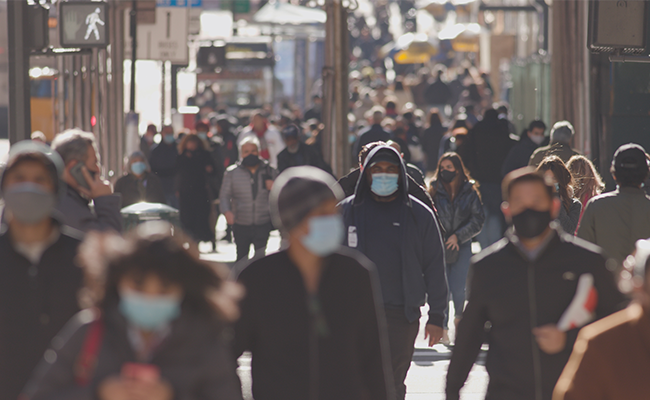 University of Queensland researchers were part of a large global study that found social sciences can accurately predict behaviours during a pandemic and help inform policy decisions.
University of Queensland researchers were part of a large global study that found social sciences can accurately predict behaviours during a pandemic and help inform policy decisions.
Professor Alex Haslam from UQ’s School of Psychology joined over 80 collaborators from more than 30 countries testing support for 19 policy recommendations related to COVID-19 that had been proposed in a highly influential paper published in 2020.
The research involved two large teams working independently of each other to assess the findings of 463 studies which involved an average of 16,848 participants and tested ideas related to the recommendations.
“Many of the recommendations outlined in the 2020 paper were adopted by Governments at the time in the process of developing their response to the pandemic,” Professor Haslam said.
“Despite the paper’s impact, some commentators questioned the analysis and the evidence base for these recommendations that were informing public health policy around the world.
“Findings confirm that predictions which are based on strong theory do stack up and provide a reliable platform for strategizing and decision making.
“Importantly too, the claims we made in the original paper were non-trivial and speak to the fact that social psychology had a very significant role to play in helping to understand the unfolding dynamics of the pandemic. This is something we should recognise when planning for the future.”
The research found that there was good evidence for 18 of the 19 recommendations in the 2020 paper, including those that related to sense of identity and community connectedness, leadership and trust, public health messaging, social cohesion, and misinformation.
The most strongly supported claims related to the importance of interventions to combat misinformation and polarization, and for clear communication from trusted leaders; all of which proved to be vital for ensuring adherence to public health guidelines.
Co-author, Professor Jolanda Jetten said the paper underlines the need to embrace insights from social and behavioural science when developing public policy in times of collective disaster.
“Prior to the pandemic many people assumed that progress would be all about the ‘hard’ science around such things as developing vaccines,” Professor Jetten said.
“While hard science is needed to develop a vaccine, social science is needed to develop policies and strategies that encourage people to take that vaccine.”
“This research is a good example of how stakeholders, partners and various disciplines can work together to help inform policy to deliver the best outcomes for the community and society as a whole.”
The research is published in Nature, and led by Columbia University’s Mailman School of Public Health.
Media: Faculty of Health and Behavioural Sciences, habs.media@uq.edu.au, @UQHealth.



